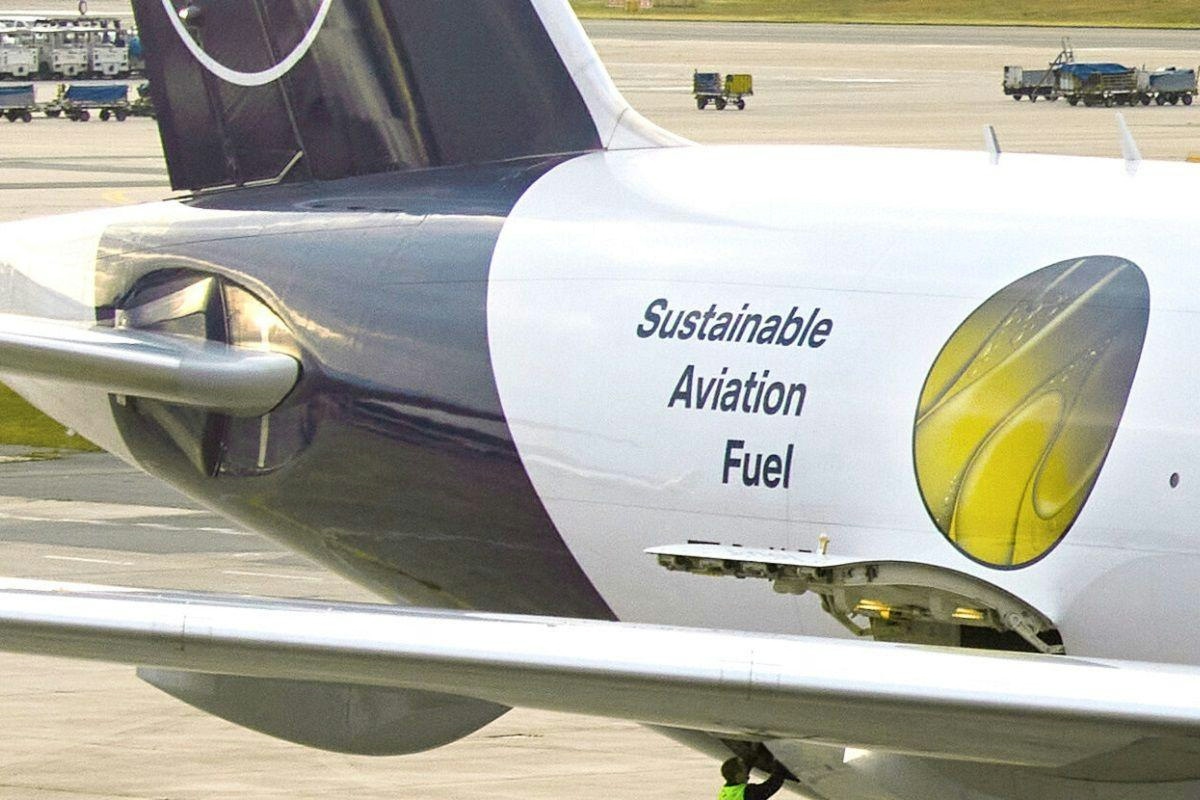AeroGenie — Your Intelligent Copilot.
Trending
Categories
Growth in Sustainable Aviation Fuel Accelerates

Growth in Sustainable Aviation Fuel Accelerates
Sustainable Aviation Fuel (SAF), also referred to as low-carbon or renewable jet fuel, is rapidly gaining prominence as the aviation industry’s most practical solution for achieving net-zero carbon emissions by 2050. Unlike emerging technologies such as hydrogen or electric aircraft, which require significant infrastructure development and aircraft redesign, SAF can be utilized in existing aircraft and fueling systems. It offers up to an 80% reduction in lifecycle greenhouse gas emissions compared to conventional jet fuel, making it an immediately deployable option for decarbonizing air travel.
Regulatory Momentum and Industry Response
The aviation sector is under increasing pressure from regulators, investors, and consumers to accelerate its decarbonization efforts. Governments around the world are implementing region-specific mandates and incentives designed to promote SAF adoption, with policies tailored to local feedstock availability and energy frameworks. In regions including the European Union, the United States, and parts of Asia, regulatory requirements are expected to drive airlines to increase SAF blending from less than 1% of global jet fuel demand today to double-digit percentages by the late 2030s.
Over the next decade and a half, SAF is projected to be the primary mechanism for reducing aviation’s carbon footprint, enabling airlines to meet near- and mid-term net-zero targets. In response, airlines are forging strategic partnerships to secure reliable SAF supplies and advance sustainability objectives despite ongoing cost pressures. Notable collaborations include Delta Air Lines’ partnership with Shell and Portland International Airport to facilitate SAF delivery, as well as Icelandic company IDunnH2’s plans to supply eSAF to business aviation clients starting in 2029.
Infrastructure, Technology, and Market Expansion
While production capacity for SAF is expanding, distribution remains a significant challenge. Delivering SAF to thousands of airports worldwide necessitates the development of new logistical capabilities and standardized quality controls. The industry is prioritizing the establishment of multimodal transportation networks, including pipelines, shipping routes, and road transport. Pipelines and trucks are expected to handle approximately 70% of SAF transportation globally through 2040.
Several SAF production technologies are reaching maturity, including Hydroprocessed Esters and Fatty Acids (HEFA), Fischer-Tropsch synthesis, Alcohol-to-Jet, and Power-to-Liquid pathways. These technologies, combined with operational improvements and market-based mechanisms, are anticipated to contribute 60 to 65% of total aviation emissions reductions by 2050.
Market forecasts underscore the rapid growth potential of SAF. According to MarketsandMarkets, the global SAF market is projected to expand from $2.06 billion in 2025 to $25.62 billion by 2030, representing a compound annual growth rate of 65.5%. In volume terms, the market is expected to grow from 0.30 billion gallons in 2025 to 3.68 billion gallons by 2030. North America is poised to lead with a 40% market share in 2025, while Europe and Asia are rapidly increasing their presence.
Despite this momentum, challenges remain. The cost of SAF remains significantly higher than conventional jet fuel—currently three to five times more—due in part to rising crude oil prices and supply-demand imbalances. Feedstock availability is limited, relying primarily on waste oils, fats, residues, and algae. To mitigate these issues, airlines and fuel producers are entering into long-term agreements and investing in new production facilities.
As the aviation industry confronts these complex challenges, consulting services are playing a crucial role in guiding airlines and stakeholders through the transition. With sustained regulatory support, technological innovation, and collaborative industry efforts, SAF is positioned to become the foundation of sustainable air transport in the coming decades.

Emirates Unveils Cabin Design for New Boeing 777X

Eighteen Years On, the Airbus A380 Remains Central to a $34 Billion Airline

How a boom in luxury airline seats is slowing down jet deliveries

Navitaire Outage Attributed to Planned Maintenance

DigiYatra Debuts Outside Aviation at India AI Impact Summit

Vietnam Orders Strengthen Boeing’s Commercial Outlook

Airbus Signals Uncertainty Over Future A400M Orders

JobsOhio Awards $2 Million Grant to Hartzell Propeller for Innovation Center

Collins Aerospace Tests Sidekick Autonomy Software on YFQ-42A for U.S. Air Force CCA Program

How the Airbus A350-1000 Compares to the Boeing 777
